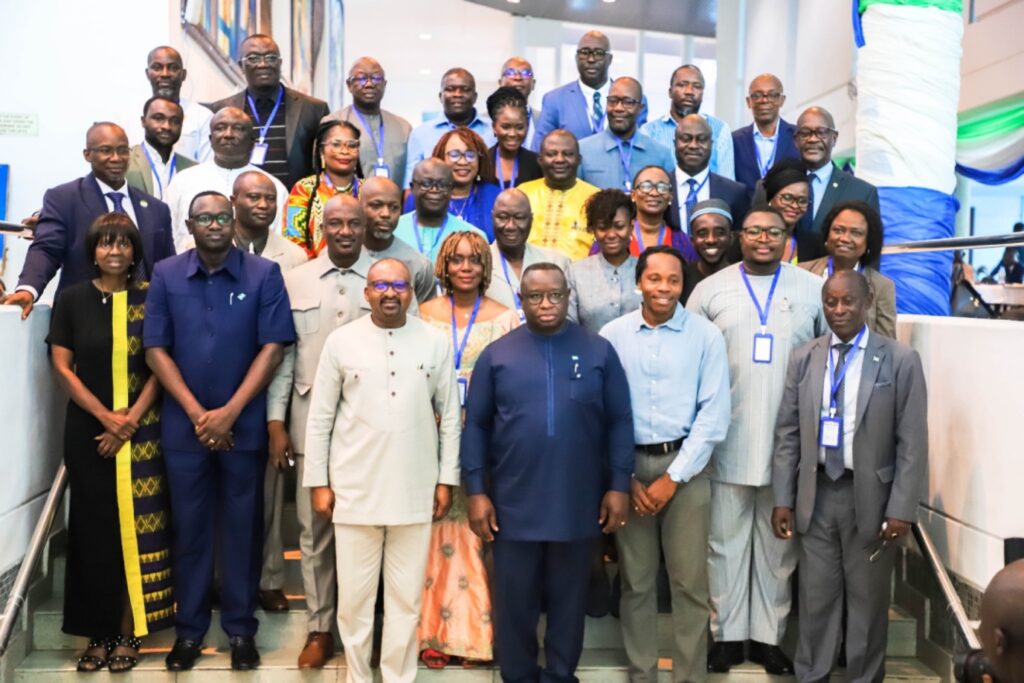“Only time will tell whether the President will allow the actions of a few individuals to truncate his avowed stance on attracting and sustaining interest in the country’s private sector.” Political and macroeconomic instability, low growth, weak infrastructure, poor governance, and inhospitable regulatory environments hinder massive Foreign Direct Investments into Africa. Consequently, countries in the continent have continued to battle stubbornly high inflation, rising food and energy prices, and weaker currencies, due to weak investment frameworks that can guarantee Foreign Direct Investment. A leading developer and operator of world-class industrial ecosystems across Africa, ARISE Integrated Industrial Platforms (ARISE IIP) is currently in the eyes of the storm, as its $400 Million planned investments in the West African Country of Sierra Leone are facing opposition from high-ranking members of Government working in cohort with the Chinese investors – and determined to truncate an existing agreement signed between the Sierra Leone government and Arise IIP.
The Government of Sierra Leone signed a Lease Agreement with ARISE Integrated IndustrialPlatforms (ARISE IIP) on 17 January 2023 for the latter to develop, expand, and manage the Pepel Railway and Port. The groundbreaking ceremony for the development of the Koya Industrial Zone (SIZ-Koya), spearheaded by ARISE IIP, was done on 26 April 2023, with key government members in attendance, including President, Dr Julius Maada Bio.
Following the agreement, Arise IIP has procured and shipped seven passenger railcars from Japan, which are expected at the Freetown Port on 26 October 2023. This project is expected to expand economic activities by providing jobs for Sierra Leoneans and enabling passengers’ locomotion from Tonkolili through Bombali to the Port Loko district.
Currently, the Company is undertaking massive infrastructural works at the SIZ-Koya industrial zone, and this asset, which aligns with ARISE IIP’s ambition to unlock Africa’s industrial potential, will support Sierra Leone in advancing the country’s industrialization agenda.
However, while Arise IIP appears to be working extensively to leapfrog sustainable development through its massive investments, indications are emerging of deliberate efforts by some members of the government to sabotage these efforts and thwart the lease agreement in favour of some Chinese government consortiums.
Back Story:
African Minerals Limited refurbished the Pepel Railway and Port with loans from China Exim Bank and Standard Bank of South Africa. The rehabilitation of the former Marampa mining railway and port costs a staggering US$1.2 Billion. The project was done on a BOT (Build, Operate and Transfer) basis.
After twenty years of operation, the assets were transferred to the Government of Sierra Leone in 2020 and became 100% Government property.
In 2021, the Government of Sierra Leone leased the assets to Kingho Railway and Port Company Limited. After two years, the government terminated the lease agreement with Kingho Railway and Port Company Limited on 10 January 2023.
The Government initiated a fresh round of bids that saw Arise IIP present the most robust and competitive proposal, hence the successful signing of the lease agreement and commencement of operations.
Therefore, it is unsettling and disturbing that some government officials are working behind the scenes to sabotage an existing agreement that may lead to protracted and grinding litigation.
The case is shaping up to assume the nature of P & ID Vs Nigeria, in which a total cost of $10 Billion was awarded against the country in the UK. More than the monetary cost, Nigeria has yet to fully recover from the reputational damage it caused, as the government has been struggling to attract foreign direct investment.
According to the Nigerian Economic Summit Group, Foreign Direct Investment (FDI) inflows dropped by 69.3 per cent (year-on-year) to US$47.6 million in 2023Q1.
For a country like Sierra Leone, currently struggling with the high cost of living and ballooning unemployment numbers, it must avoid dehorting potential investors with uninspiring news of this nature.
This is also partly responsible for high-interest rates for Africa-focused investments by international lending partners. The continent is seen as a high-risk market, hence the high cost of borrowing by investors interested in promoting major infrastructure projects. The cost is eventually passed over to the citizens, who bear the burden of paying more for services that should have been cheaper.
